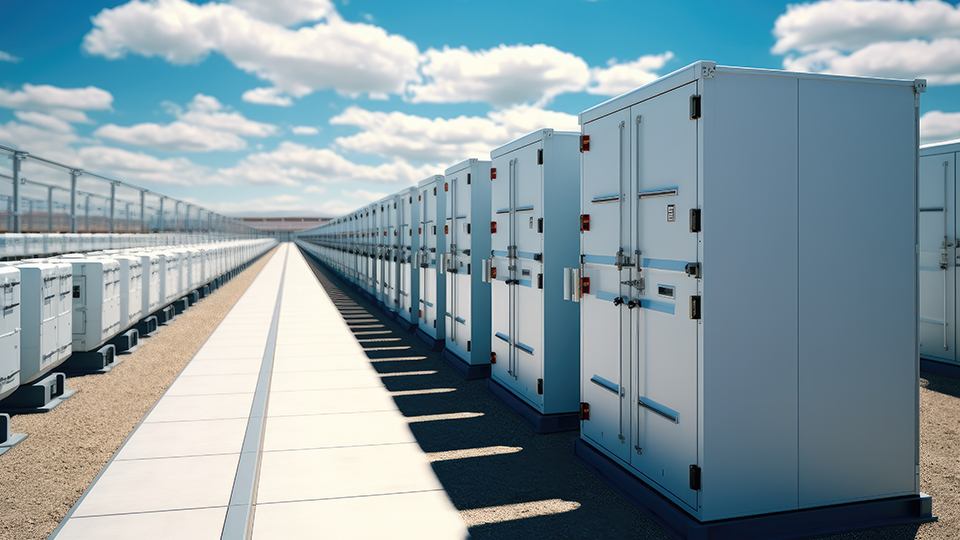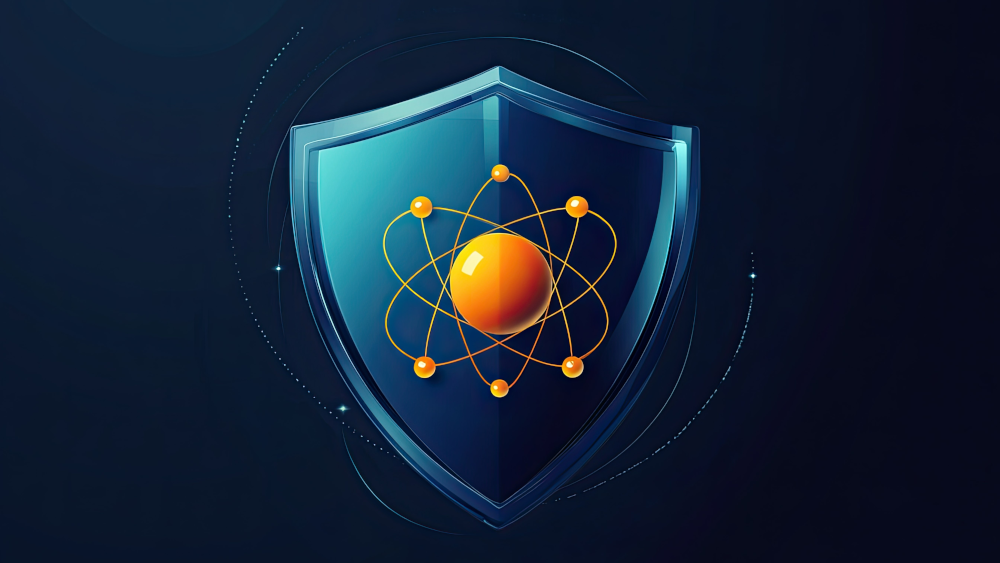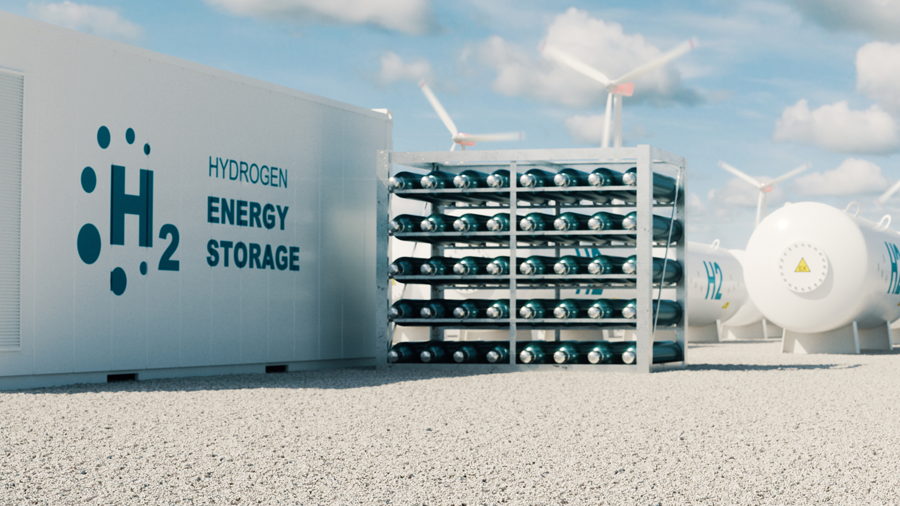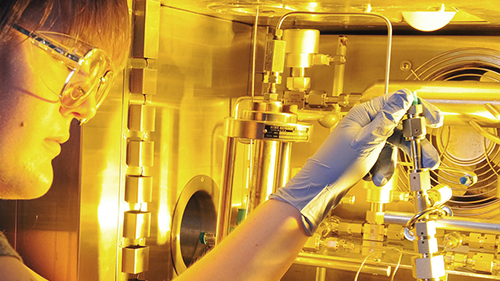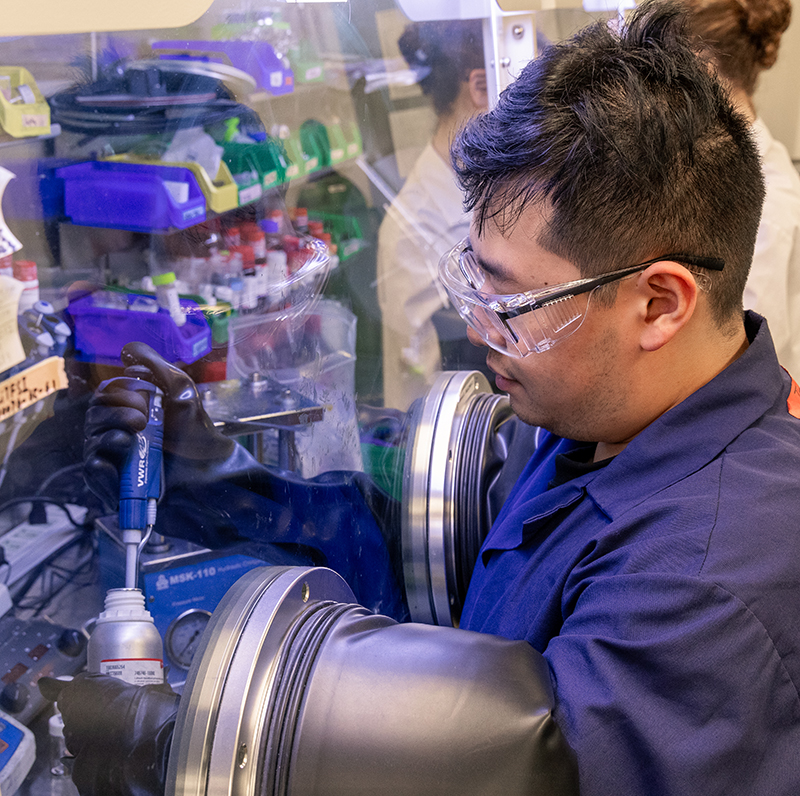
Energy Research
The Strategic Energy Institute (SEI) serves as a catalyst for interdisciplinary energy research at Georgia Tech, uniting experts across engineering, science, economics, and policy to address the nation's most pressing energy challenges.
Creating Novel, Resilient, Secure Energy Systems
Today’s energy landscape is defined by an aging infrastructure, rising energy demand, and the urgent need for secure, clean technologies to ensure our nation's energy independence. SEI tackles these challenges by fostering collaboration among faculty, students, industry leaders, government agencies, and national labs to develop innovative, scalable, real-world energy solutions. By leveraging Georgia Tech’s entrepreneurial spirit and advanced research facilities, SEI helps accelerate large-scale innovation and progress in strategic areas—positioning the Institute as a global leader in clean technology transformation.
Energy research at Georgia Tech is organized into two complementary pillars:
- Technology and Innovation
- Systems, Policy, and Convergence Research
Technology and Innovation
This pillar focuses on advancing cutting-edge technologies that are critical to the future of energy. This includes innovations in battery and energy storage, carbon-neutral fuels, critical minerals, hydrogen technologies, and advanced nuclear energy research. Georgia Tech researchers are also pushing the boundaries in Direct Air Capture (DAC), advanced mobility solutions that integrate civil infrastructure with vehicle-to-grid technologies, and the development of alternative fuels including solar and photovoltaics, and critical minerals essential for clean energy transitions.

Energy Generation and Distribution
Electricity generation and distribution in the U.S. has evolved as a centralized system. Customers receive electricity from very large power plants that are 10's or 100's of miles away over a vast network of transmission lines and transforming stations. This landscape is changing due to the rapid adoption of renewables, smart grids, micro grids, small-scale producers, energy storage, net metering, and consumer level grid-tied systems. Georgia Tech researchers are developing the technologies to enable these emerging systems to work together for a more resilient, efficient, and cleaner energy future.
Energy Storage
Energy storage technologies such as batteries have a critical role to play in our rapidly electrifying society. Georgia Tech has over 20 faculty and more than 150 researchers working to power the future with next generation energy storage technologies. Topic areas include mobility applications (EVs, drones, wearables, eVTOLs, space craft), stationary applications (grid-connected, distributed off-grid, integrated with intermittent generation), chemistries (solid-state, liquid, hydrogen, low/zero-carbon fuels), long duration storage technologies (flow batteries, thermal, mechanical, pumped hydro and hydrogen), energy system controls and management, and technology component recycling. The Georgia Tech Advanced Battery Center (GTABC) was established in 2024 to formalize and organize Georgia Tech’s strengths in energy storage research, policy, and education.
Critical Minerals
Critical minerals—including rare earth elements, graphite, and battery metals—are essential to high‑tech manufacturing and energy security. Yet rising demand, environmental impacts from extraction, and supply chain and geopolitical risks are straining global supply. Georgia Tech researchers are addressing these challenges by uniting industry and academic partners through Georgia’s integrated ecosystem—spanning universities, technical colleges, national labs, and public‑private collaborations—which now serves as a scalable model for the Southeast and beyond.
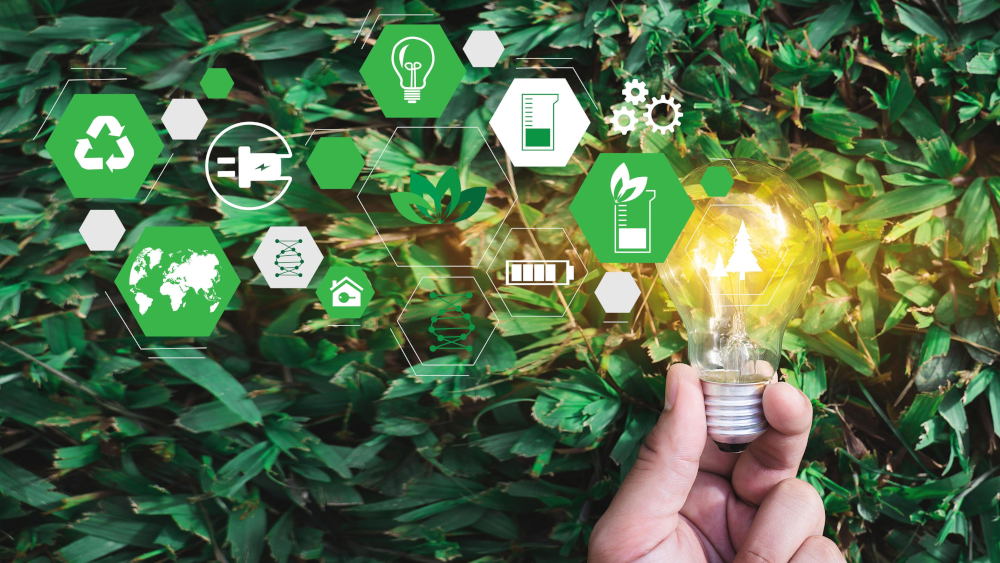
Alternative Fuels
The fuel and chemical sectors will continue to play important roles in the energy and industrial future of our lives for some time to come. Talk of liquid fuels mostly gives rise to thoughts of cars and gas stations. However, the infrastructure that has evolved to enable our liquid fuel powered transportation system is enormous and complex. An equally large infrastructure system runs in parallel to supply the world with chemicals that our industries rely upon. Georgia Tech researchers are working to ensure that these valuable resources are put to the best uses, in the most efficient ways, with the least amount of pollution possible.
Hydrogen Technologies
Georgia Tech has a broad range of testbeds, industry partnerships, and federal programs across the hydrogen value chain, including hydrogen production, storage/transport, and utilization. Georgia Tech is also focused on developing diverse STEM talent for such industries and is committed to ensuring that these advancements impact our society in an environmentally and socially ethical manner.

Solar and PV Conversion
Achieving a net-zero carbon future will require harnessing the full spectrum of renewable energy technologies. While solar and photovoltaic (PV) technologies have made significant strides, continued innovation is especially critical for vertically integrated PV manufacturing, as most active PV materials are still sourced internationally. To help close this gap, Georgia Tech researchers are advancing solar energy through the development of novel materials and next-generation device designs.
Carbon Capture Technologies
The Direct Air Capture Center (DirACC) is the culmination of more than a decade of research at Georgia Tech to develop materials and processes that extract carbon dioxide (CO2) directly from the atmosphere. With several recent awards, Georgia Tech researchers—with the support of Georgia Tech’s Strategic Energy Institute (SEI)—have launched the Direct Air Capture Center (DirACC), under the guidance of Professors Christopher W. Jones and Matthew J. Realff. DirACC will create a forum for collaborative research on NETs and DAC, bringing together researchers from across the Institute working in energy, sustainability, policy, and related fields.
Systems, Policy, and Convergence Research
This pillar emphasizes a broader, integrative approach through systems analysis, which includes sustainability lifecycle assessments and energy data analytics. It also addresses cross-cutting themes such as cybersecurity, national security, and the intersections of energy with health and the environment.
Energy Economics and Policy
Being the nation’s top-ranked public university for energy research, Georgia Tech has a strong team of multidisciplinary experts who develop solutions grounded in sound economics, policy, and science. The Energy Policy and Innovation Center (EPIcenter) at Georgia Tech was launched in the Fall of 2016 to conduct research, provide information, and coordinate related activities with policy and community leaders and innovators in the energy industry. By partnering with a variety of individuals and organizations including utility companies, and nonprofits, the Center explores the intersection of policy and technology and draws upon the extensive expertise in the Southeast.

Systems Analysis
Researchers at Georgia Tech are developing sound and data driven strategies to address the critical and complex policy implications of the energy landscape we inhabit. Profound economic, security, access, and environmental considerations associated with energy generation, storage, distribution, and use require just as much consideration as the systems themselves. Fostering a collaborative approach to problem solving, Georgia Tech researchers are helping to ensure safer, more reliable, more accessible, and affordable supplies of energy to meet our needs now, and in the future.
Cybersecurity
While the scope of the cyber threat against critical infrastructure is understood, capabilities to address the threat are spread across numerous organizations, involving diverse academic, government, and industry stakeholders. Moreover, there is a critical shortage of skilled personnel with understanding of both cybersecurity and the underlying physical systems. Georgia Tech researchers are working towards delivering the technologies, testbeds, and talent necessary to secure the nation’s critical infrastructure.

